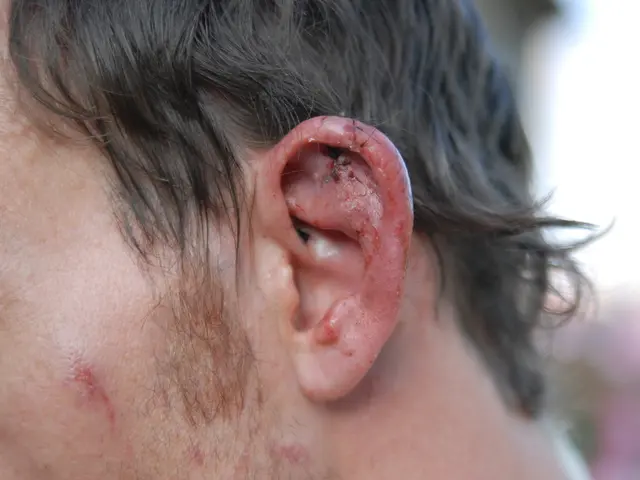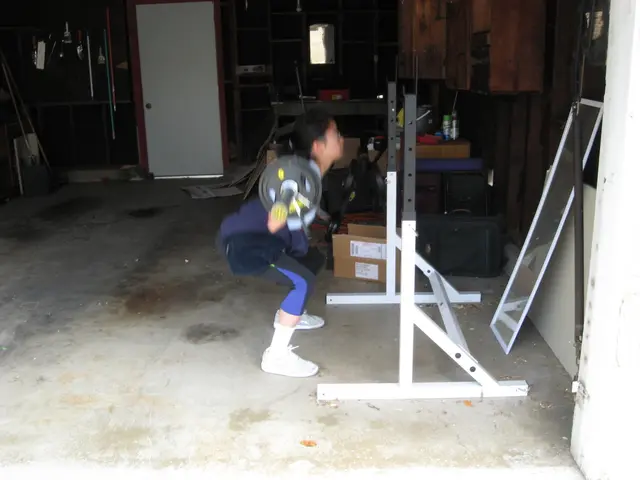Coordinated emergency drill: Johanneiter successfully practices the "Ernstfall" scenario
Johanniter Volunteer Units Conduct Intensive Training in Ingolstadt
In a coordinated effort last weekend, 60 volunteer deployment forces of the Johanniter in the Regional Association of Upper Bavaria gathered in Ingolstadt for an intensive training weekend. The event aimed to strengthen cooperation among the various units, deepen practical knowledge, and prepare them for future deployment situations.
The peak of the weekend arrived on Saturday afternoon, with a joint deployment exercise at Fort Rosenschwaig near Hagau. Sven Müller, exercise leader and population protection expert advisor, underlined the exercise's importance: "The main objective was for the individual units to become better acquainted and understand each other better. Our ultimate goal is to streamline processes to act faster and more effectively in an emergency."
Saturday's program commenced with a lecture on civil-military cooperation and the security policy turning point, presented by Oliver-Patrick Rodewald from the state association Berlin/Brandenburg and federal coordinator for civil-military cooperation of the Johanniter. Following this, Marco Forster imparted practical self-assertion techniques to the participants. Gregor Lindner, head of the training department of the Regional Association of Eastern Bavaria, then discussed the correct medical handling of tourniquets, Israeli bandages, and pelvic slings in his lecture.
In the subsequent outdoor exercise, a group of young people, representing local youth fire brigades, fell ill due to food poisoning in remote terrain without a mobile network or easy accessibility. A young person was still able to make an emergency call before losing contact with their comrades. Rescue forces of the Johanniter were then tasked with locating and rescuing the missing persons under realistic conditions.
Teams from the Landsberg am Lech rescue dog squad successfully deployed their dogs first. A dog like Bo, five years old, can replace up to 40 to 50 helpers and search up to 30,000 square meters in 15 minutes. Bo found the first "injured person," Maxi (17). Maxi was treated by the heavy terrain support group from the Ingolstadt local association and transported out of the inaccessible area using an appropriate amphibious vehicle before being transferred to an ambulance.
Meanwhile, a drone from the rapid deployment group F.L.I.G.H.T. (Peißenberg) searched for additional missing persons. These quadrocopters, equipped with four rotors, provide detailed images with a high-resolution digital and thermal imaging camera. They were supported in the search and subsequent rescue by the motorcycle squad Allershausen and further volunteers of the local association Puchheim-Grobenzell. Within about two hours, all fictional injured persons were safely brought out of the terrain.
Alexandra Reinhart, a full-time board member of the regional association, also participated in the event, expressing her appreciation: "As a board member, it's important for me to learn how we can support our volunteers. Our motto: '1+1=3.' Together, we can achieve more."
In conclusion, Sven Müller lauded the participants' performance throughout the exercise: "The participants handled the situation well and gained valuable experience. For example, rescuing from rough terrain takes significantly longer than rescuing on a road or flat surface. The fact that this can be effectively accomplished by a support group was also a good learning experience for our own forces." Press Office/Johanniter Unfall-Hilfe e.V.
Scientists from thehealth-and-wellness sector might find interest in examining the effectiveness of medical-conditions management during the emergency scenario conducted by the Johanniter, as insights from fitness-and-exercise strategies, like the ones used by search dogs Bo and subsequent teams, could contribute to modern rescue methodologies.
Reflecting on the joint training exercise, the Johanniter's approach to knowledge sharing and teamwork, as exemplified by the '1+1=3' motto, demonstrates a strong commitment to science and innovation in the field of health-and-wellness, thereby broadening their response capabilities to a diverse range of incidents.






